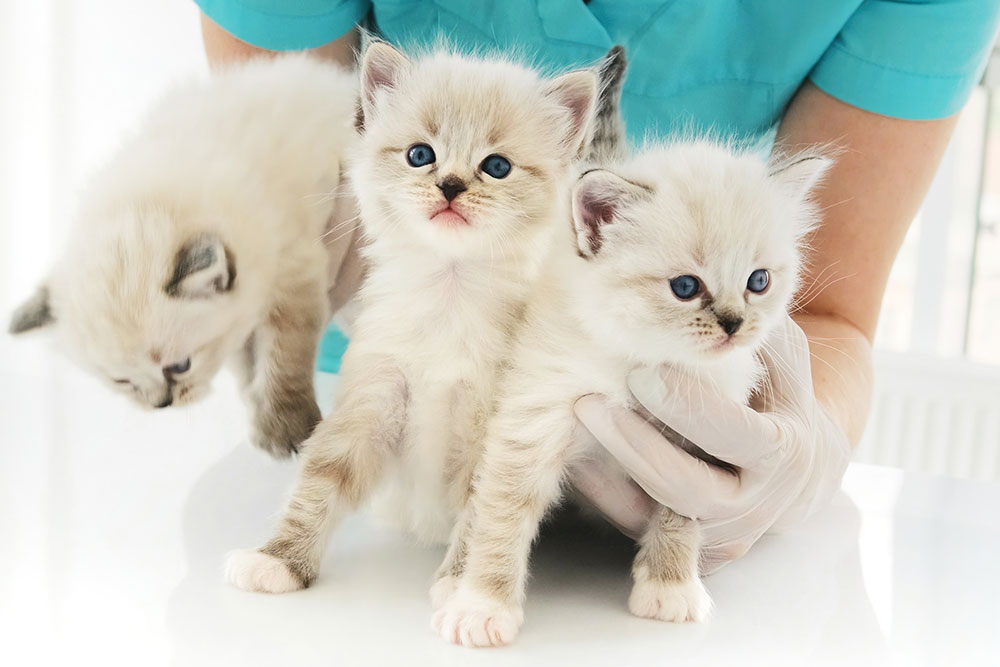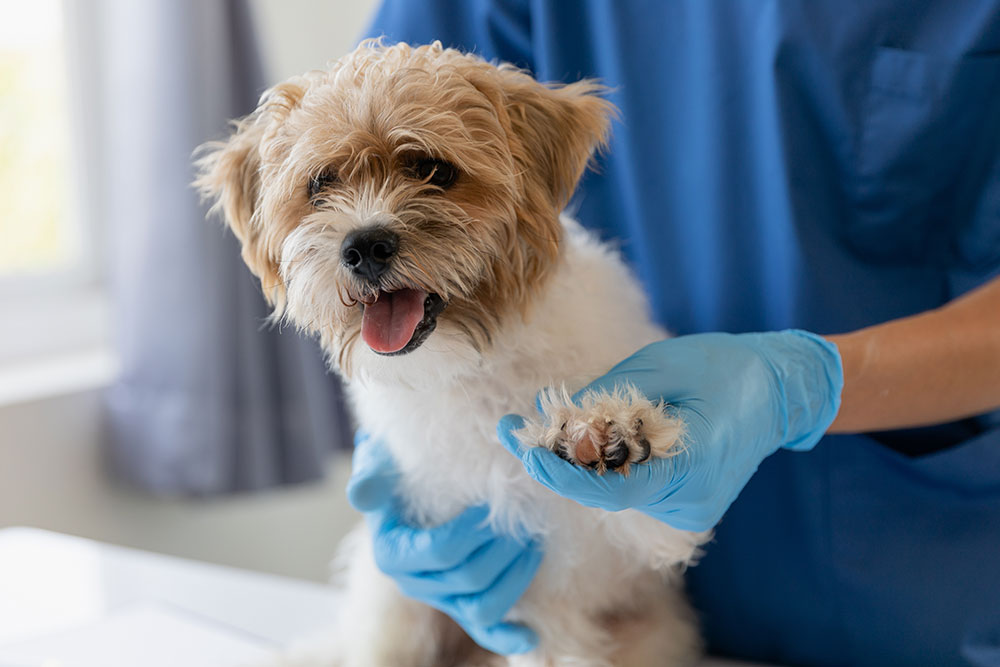Why Are Wellness Exams Important for Your Pet?
Routine wellness exams are the foundation of preventive veterinary care. These regular check-ups allow veterinarians to identify early signs of illness, monitor ongoing health concerns, and ensure your pet is thriving at every stage of life.
At La Grange Veterinary Hospital, we emphasize the importance of proactive care to prevent minor health concerns from turning into serious medical conditions. Annual or biannual wellness exams help extend your pet’s lifespan and improve their quality of life.
Learn more about the importance of wellness exams from the American Veterinary Medical Association (AVMA).
What Happens During a Wellness Exam?
A comprehensive pet wellness exam includes a full-body assessment and diagnostic screenings to detect potential health concerns early.
1. Physical Examination
The veterinarian will perform a nose-to-tail assessment, checking for:
Weight and body condition to assess overall health.
- Coat and skin health to check for signs of allergies, infections, or parasites.
- Eye and ear health to identify infections, cataracts, or hearing loss.
- Dental health to detect gum disease, tartar buildup, or fractured teeth.
- Heart and lung function to screen for murmurs, irregular heartbeats, or respiratory issues.
- Abdominal palpation to check for masses, swelling, or pain.
This hands-on assessment provides crucial insights into your pet’s overall health.
2. Bloodwork and Lab Testing
Routine lab work plays a key role in detecting underlying conditions that may not yet show symptoms.
- Complete Blood Count (CBC) – Checks for infections, anemia, and immune system function.
- Blood Chemistry Panel – Evaluates liver, kidney, and metabolic function.
- Heartworm Testing – Essential for dogs in areas with mosquitoes.
- Fecal Testing – Screens for parasites like hookworms, roundworms, and giardia.
- Urinalysis – Detects infections, kidney disease, and diabetes.
For a deeper dive into why bloodwork is vital for your pet, visit the Pet Health Network.
3. Vaccination Review
Your veterinarian will review your pet’s vaccination history and ensure they are up to date on core and lifestyle-specific vaccines, such as:
- Rabies (required by law in most areas).
- Distemper, Parvovirus, and Adenovirus (core vaccines for dogs).
- Feline Leukemia Virus (FeLV) (recommended for outdoor cats).
- Leptospirosis and Lyme Disease (for dogs in high-risk environments).
Keeping vaccines up to date protects your pet from preventable illnesses and safeguards public health.
4. Parasite Prevention
Fleas, ticks, and intestinal parasites can cause significant discomfort and disease. During a wellness exam, your veterinarian may:
- Perform skin and coat checks for flea infestations.
- Conduct flea combing to detect flea dirt.
- Recommend year-round heartworm and tick prevention.
Consistent parasite prevention is critical for keeping pets healthy, particularly in warm climates where pests thrive.
The Importance of Wellness Exams for Senior Pets
As pets age, they require more frequent veterinary care to monitor age-related conditions like arthritis, kidney disease, and cognitive decline.
Common Senior Pet Health Concerns:
- Osteoarthritis: Causes joint pain, stiffness, and mobility issues.
- Chronic Kidney Disease: More common in cats, leading to weight loss and increased thirst.
- Cognitive Dysfunction Syndrome (CDS): Similar to dementia in humans, causing confusion and behavioral changes.
- Heart Disease: Can lead to coughing, lethargy, and breathing difficulties.
Since early signs of disease can be subtle, regular check-ups and preventive screenings help manage senior pet health. Read more in AAHA’s guide to recognizing senior pet health problems.
DIY Home Wellness Checks: What to Monitor Between Vet Visits
Between professional exams, pet owners can conduct simple at-home health checks to catch potential concerns early.
At-Home Health Check for Pets:
- Weigh your pet regularly – Sudden weight loss or gain can signal thyroid issues, diabetes, or cancer.
- Check their gums and teeth – Pale gums may indicate anemia, while bad breath can be a sign of dental disease.
- Monitor hydration levels – Gently pinch your pet’s skin; if it doesn’t snap back immediately, they may be dehydrated.
- Observe behavior changes – Increased aggression, lethargy, or confusion can indicate pain or illness.
- Feel for lumps and bumps – If you notice new growths or swelling, schedule a vet visit promptly.
For a step-by-step guide on performing a home wellness exam, visit Kinship’s DIY Dog Checkup.
How Often Should Your Pet Have a Wellness Exam?
- Puppies & Kittens: Every 3-4 weeks until 16 weeks old for vaccines and growth monitoring.
- Adult Pets (1-7 years): Once per year for a full wellness exam.
- Senior Pets (7+ years): Every 6 months to monitor age-related conditions.
Annual exams help ensure your pet’s vaccinations, dental health, and preventive treatments remain up to date.

Book Your Pet’s Next Wellness Exam at La Grange Veterinary Hospital
Routine veterinary check-ups are essential for preventing illness, catching health issues early, and ensuring a long, happy life for your pet.
At La Grange Veterinary Hospital, we offer:
- Comprehensive wellness exams tailored to your pet’s age and lifestyle.
- Vaccination updates and parasite prevention for year-round protection.
- Advanced diagnostics, including bloodwork and urinalysis.
- Personalized nutrition and weight management advice.
Schedule your pet’s next check-up today! Visit our contact page or call us to book an appointment.








Leave A Comment